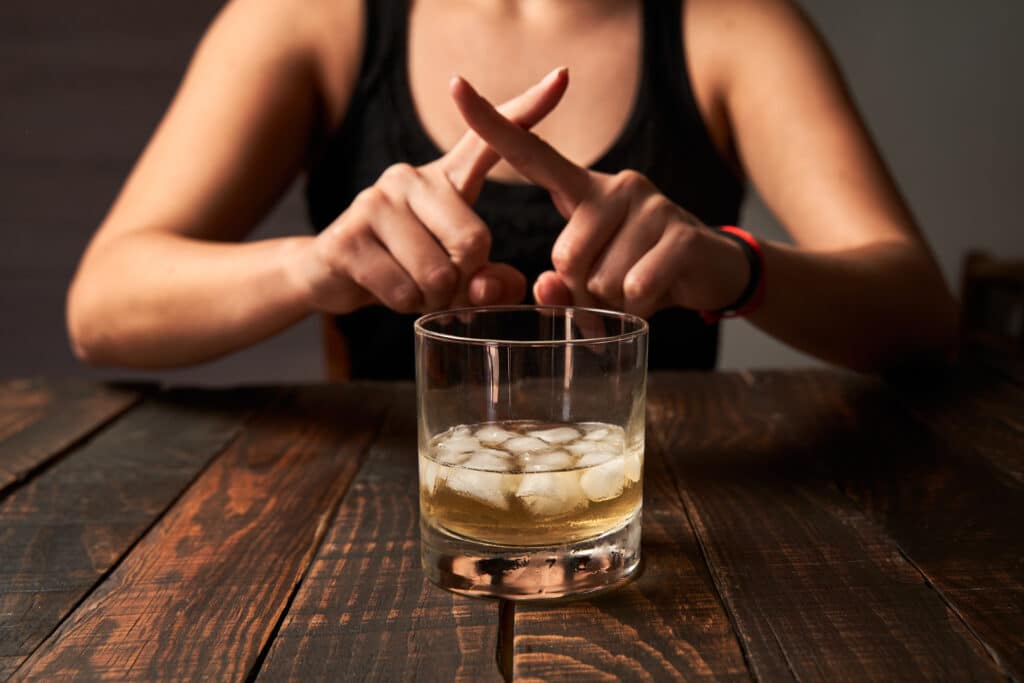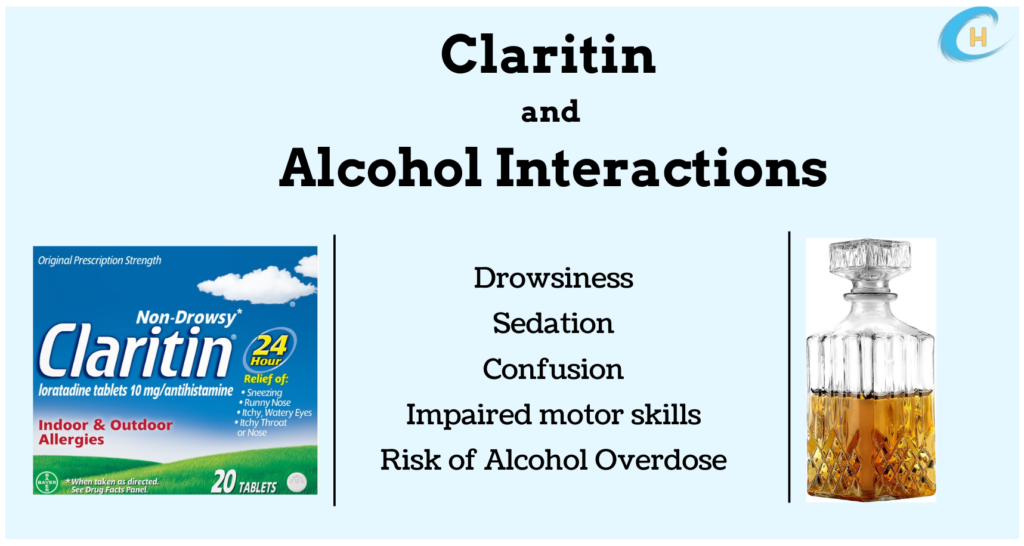Do Claritin and Alcohol Interact?
Spring is coming and along with spring are allergies. Over-the-counter antihistamine medications such as Claritin, Zyrtec and Benadryl are some of the most popular and commonly used among those who suffer from allergies. What happens when you mix Claritin with alcohol? Alcohol is a central nervous system depressant and can lead to feelings of drowsiness and impaired coordination. Claritin can also produce the effect of drowsiness. The combination of both substances can cause risky and intensified effects.

Claritin contains the ingredient loratadine. It is used to treat symptoms of seasonal allergies such as sneezing, runny nose, itchy and watery eyes, itchy nose, mouth or throat. It can also help relieve other upper respiratory symptoms including coughs induced by allergies. Though the allergy medication Claritin is safe to use daily in treating allergies, combining it with another substance like alcohol, can cause unpredictable side effects. There are many ways to treat symptoms such as runny nose, itchy eyes and sore throat. However, antihistamines such as Claritin are often chosen over other medications because they are a safer option with little to no risk of developing an addiction.
What is Claritin?
Claritin is part of a group of second-generation antihistamine medications. It comes in chewable tablets, dissolvable tablets, liquid gels and oral tablets. Common side effects of taking Claritin include headache, lightheadedness, drowsiness, slurred speech, slight fatigue, nervousness and nausea. Adverse side effects may include rapid heart rate, sore throat, skin rash, red eyes, jaundice, seizures, blurred vision, lack of coordination and difficulty breathing.
Benadryl (diphenhydramine) is a first-generation antihistamine that causes sedation, drowsiness, and impaired alertness and concentration. It is more likely to reach the brain and affect the central nervous system. On the other hand, second-generation allergy medications like Claritin, Zyrtec, Allegra and Xyzal, do not have a major impact on the CNS.
Zyrtec contains cetirizine, Allegra contains fexofenadine and Xyzal contains levocetirzine. Despite these second-generation antihistamines actually having fewer side effects compared to first-generation allergy medications, when taken with alcohol, can cause drowsiness and sleepiness. And more specifically, mixing Claritin with alcohol can create unsafe side effects that should be avoided.

How long after Claritin can I drink Alcohol?
Claritin can relieve allergy symptoms for 12 – 24 hours. The antihistamines half-life is about 8 hours and would take approximately 28 hours for the majority of the drug to be eliminated from the body. It is recommended to wait at least two days after the last dose of allergy medicine is taken to drink alcohol. However, medications such as Claritin and Zyrtec can have ongoing residual effects lasting up until four days after the initial dose was taken. Ideally, taking Claritin and alcohol together should be avoided at all costs.
How do Antihistamines like Claritin work?
When allergens enter the body, the immune system often mistakes the allergen as a dangerous intruder. The body then activates chemicals like histamine to fight off the foreign intruders. Histamine triggers the immune system response to get rid of the allergens causing the person to sneeze, itch and have a runny nose. Claritin works by preventing the histamine from binding to histamine receptors in the body to stop the reactions from occurring.
Check Your Insurance Coverage for FREE
Find out if your insurance covers addiction treatment in minutes. We accept most insurance!
Claritin and Alcohol
Doctors and clinicians do not recommend mixing Claritin and alcohol. According to the National Institute on Alcohol Abuse and Alcoholism, combining Claritin and alcohol can result in dangerous and exacerbated side effects.
Alcohol is a central nervous system depressant. Drinking excessive amounts can make a person feel drowsy, it can impair their coordination, and it can slow down their breathing. Alcohol directly interferes and impacts the brain’s communication system leading to confusion and lethargy. When adding an antihistamine to alcohol, it can worsen or intensify alcohol’s negative side effects.
- Dizziness – Claritin and alcohol can decrease heart rate and make it more difficult for the heart to pump blood to the rest of the body. This can make you feel more faint and lightheaded. It also makes it more difficult to control your body movements.
- Drowsiness – Claritin and alcohol increase feelings of sleepiness and tiredness due to alcohol’s sedative effects.
- Dehydration – Both Claritin and alcohol cause dehydration and can make symptoms from both substances worse.
- Learning and memory impairment – Claritin blocks the action of the neurotransmitter called acetylcholine, which is necessary for brain functions in learning and memory. Temporarily blocking this neurotransmitter will interfere with the process. Alcohol is a substance known to also interfere with normal cognitive brain functions. The combination of both substances will only intensify this negative symptom.
- Overdose – Both substances are processed in the liver. When both are competing in the body, it could take longer for the liver to process causing the person to feel more intoxicated than they normally would if they consumed alcohol alone. There is a higher risk of overdose.
- CNS Depression – This leads to higher chances of accidents and engaging in risky situations because of the slowing of important body systems including breathing, heart function and brain function.
- Intense sedation – This could lead to unresponsiveness while awake, loss of consciousness or the inability to wake up.
- Impaired motor skills and delayed reaction times
- Psychoactive effects – The combination of drugs could lead to the potential for hallucinations or delusions.
- Mental Health – Using Claritin and alcohol can trigger mental health conditions such as ADHD, PTSD, anxiety or depression.
- Polysubstance abuse – Using both drugs can lead to the development of an alcohol addiction.
Reach out to Hotel California by the Sea
We specialize in treating addiction and other co-occurring disorders, such as PTSD. Our Admissions specialists are available to walk you through the best options for treating your addiction.
Treatment for Alcohol Use Disorder
Oftentimes people are unaware they are combining substances that cause dangerous and unknown side effects. Take Claritin and alcohol for example. Claritin is an over-the-counter antihistamine medication that can be found in any home medicine cabinet. It is a common medication taken to relieve symptoms of seasonal allergies. Most people are not aware of the interaction it can cause with a substance like alcohol. In fact, the combination of the two drugs can cause serious sedative effects that impair both cognitive and motor functions. This in turn can put a user in risky situations they are not fully aware of. This can also lead to the development of alcohol toxicity and over time, alcohol addiction.
Hotel California by the Sea has a unique alcohol use disorder program with individualized programs for every client. We offer all levels of care including alcohol detox, inpatient residential and outpatient programming. We help our clients better understand the root causes of their addiction through unique treatment methods such as CBT, group therapy and family therapy. Our clients will receive one-on-one time with counselors, case managers and physicians during their time in recovery. Hotel California by the Sea is committed to providing care and guidance through our programs to help clients overcome their addictions.
References:
https://www.goodrx.com/classes/antihistamines/drinking-alcohol-with-allergy-meds-benadryl-zyrtec
https://alcoholrehabhelp.org/interactions/claritin/
https://www.healthline.com/health/claritin-and-alcohol
https://www.verywellhealth.com/what-you-should-know-about-claritin-770668
https://alcoholicsanonymous.com/polysubstance-abuse/alcohol-and-antihistamines/
https://www.restorecenterla.com/fundamental-reasons-you-shouldnt-mix-allergy-medicine-and-alcohol/
https://addictionresource.com/drugs/antihistamines/and-alcohol/
